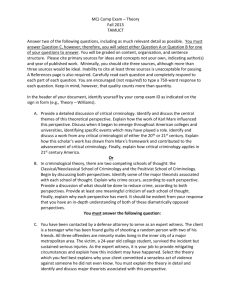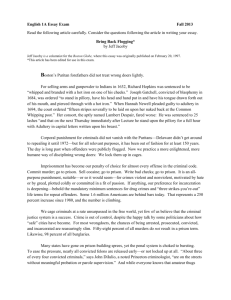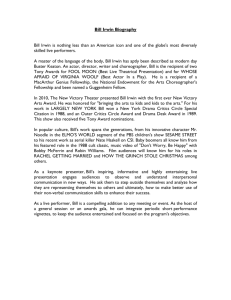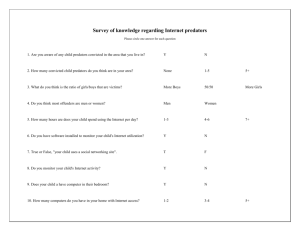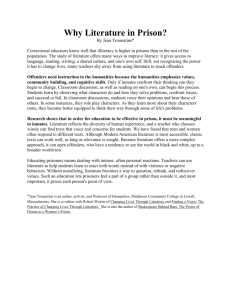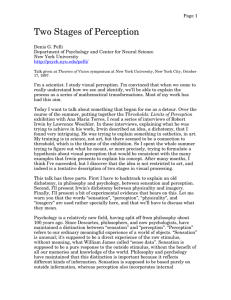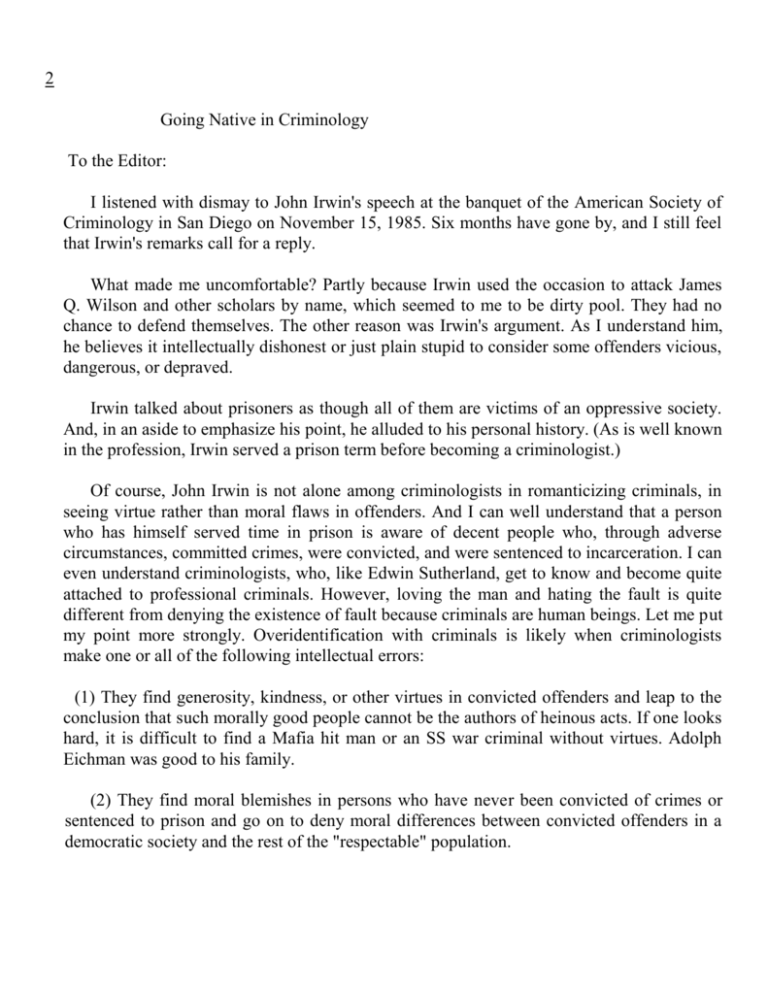
2
Going Native in Criminology
To the Editor:
I listened with dismay to John Irwin's speech at the banquet of the American Society of
Criminology in San Diego on November 15, 1985. Six months have gone by, and I still feel
that Irwin's remarks call for a reply.
What made me uncomfortable? Partly because Irwin used the occasion to attack James
Q. Wilson and other scholars by name, which seemed to me to be dirty pool. They had no
chance to defend themselves. The other reason was Irwin's argument. As I understand him,
he believes it intellectually dishonest or just plain stupid to consider some offenders vicious,
dangerous, or depraved.
Irwin talked about prisoners as though all of them are victims of an oppressive society.
And, in an aside to emphasize his point, he alluded to his personal history. (As is well known
in the profession, Irwin served a prison term before becoming a criminologist.)
Of course, John Irwin is not alone among criminologists in romanticizing criminals, in
seeing virtue rather than moral flaws in offenders. And I can well understand that a person
who has himself served time in prison is aware of decent people who, through adverse
circumstances, committed crimes, were convicted, and were sentenced to incarceration. I can
even understand criminologists, who, like Edwin Sutherland, get to know and become quite
attached to professional criminals. However, loving the man and hating the fault is quite
different from denying the existence of fault because criminals are human beings. Let me put
my point more strongly. Overidentification with criminals is likely when criminologists
make one or all of the following intellectual errors:
(1) They find generosity, kindness, or other virtues in convicted offenders and leap to the
conclusion that such morally good people cannot be the authors of heinous acts. If one looks
hard, it is difficult to find a Mafia hit man or an SS war criminal without virtues. Adolph
Eichman was good to his family.
(2) They find moral blemishes in persons who have never been convicted of crimes or
sentenced to prison and go on to deny moral differences between convicted offenders in a
democratic society and the rest of the "respectable" population.
(3) They find individual cases of extraordinary virtue among convicted offenders -- say,
for example, a man who killed his terminally ill wife out of compassion and love -- and
proceed to assume that prisons are populated largely by saints.
I think of criminology as a discipline. By "discipline" I mean more than subject matter. I
mean that we ought to restrain impulses, including benign impulses, that prevent us from
seeing the world realistically. Just as anthropologists cannot be trusted (intellectually) when
they "go native" to the extent that they glorify rather than study their preliterate societies, so
a criminologist who has gone native cannot be trusted to tell us what criminals are like.
Jackson Toby
Institute for Criminological Research
Rutgers University
THE CRIMINOLOGIST is published six times annually - in July, September, November,
January, March, and May. Copyright @ 1986 by the American Society of Criminology. All
rights reserved. Distributed to all members of Asc. Annual subscriptions to non-members:
$7.50; foreign subscriptions: $10.00; single copy: $1.50. Non-member subscriptions should be
ordered from the Society's membership office (address below). ISSN 0164-0240.
Editor: Hugh Barlow, Dept. of Sociology/Social Work, Southern Illinois University,
Edwardsville, IL 62026.
Published by the American Society of Criminology, 1314 Kinnear Road, Suite 212, Columbus,
OH 43212.
Vol. 11, No.3, May-June 1986

